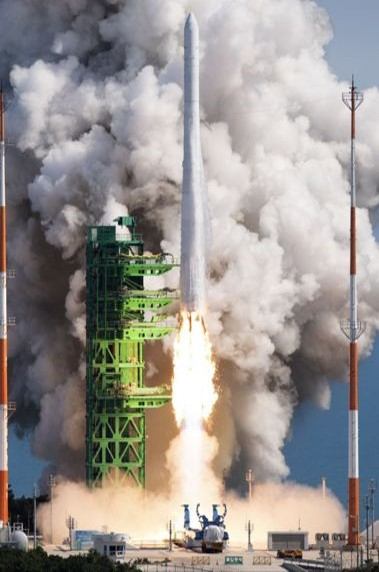Hanwha Aerospace selected as preferred bidder for S. Korea's space rocket project
By YonhapPublished : Oct. 7, 2022 - 20:32

Hanwha Aerospace Co., an aerospace business unit of chemical-to-financial conglomerate Hanwha Group, has been selected as preferred bidder for South Korea's space rocket-upgrading project, the company said Friday.
Hanwha Aerospace beat the country's sole aircraft manufacturer Korea Aerospace Industries Co. (KAI) in the 300-billion won ($213 million) project spearheaded by state-run Korea Aerospace Research Institute (KARI), the company said in a statement.
"Hanwha Aerospace will consult with KARI to decide on specific development costs, transfer of technologies and facility investments before signing a final agreement next month," a Hanwha spokesperson said over the phone.
In June, South Korea successfully launched its homegrown space rocket Nuri in its second attempt to put satellites into orbit, reaching a major milestone in the country's space program.
South Korea became the seventh country in the world to develop a space launch vehicle that can carry a more than 1-ton satellite, after Russia, the United States, France, China, Japan and India.
It also means South Korea has secured the key independent technology for developing and launching space rockets carrying homegrown satellites, opening up a new era in the country's space program. (Yonhap)



















![[Today’s K-pop] Treasure to publish magazine for debut anniversary](http://res.heraldm.com/phpwas/restmb_idxmake.php?idx=642&simg=/content/image/2024/07/26/20240726050551_0.jpg&u=)